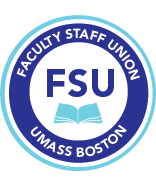The Point: Platforms
10/19/2020
In which we consider some of the complexities of censorship is this moment of Zoom.
Greetings, Colleagues:
I assume by now you have seen the Chancellor's letter about what the rest of 2020-2021 will probably look like at UMB. It is no surprise that we are already being encouraged to think about our teaching remaining largely remote for the rest of the academic year. After half a year of learning to use Zoom (and to use “zoom” and its variants as noun, adjective, and gerund) maybe it is time for us to open up some conversations about the platform itself.
Teaching synchronously with zoom has raised all kinds of questions about security, equity, and privacy—some of which have already been considered in The Point. No one has captured these concerns more cogently and forcefully than our own undergraduates: Faculty Council circulated a letter written by the Undergraduate Student Government (USG) which laid out a number of problems engendered by our headlong adoption of this platform for our synchronous classes. Security, privacy, equity, trust: these are keywords we need to begin launch some investigations around.
But we also need to center “censorship” as a keyword when it comes to Zoom.
It was only a few weeks ago that Zoom cancelled a webinar sponsored by San Francisco State University, apparently because of organized opposition to the fact that it featured the Palestinian activist Leila Khaled. After Zoom shut down the webinar, YouTube also censored it and Facebook deleted dozens of references to the event. In response, a group of faculty members at UMB have joined a nationwide effort to call attention to this corporate censorship and is presenting a webinar on the subject this Friday at 11. “We Will Not Be Silenced: The Repression of Academic Freedom and Resistance, From Leila Khaled to UMass Boston” will be moderated by Professor Heike Schotten (Political Science) and will feature presentations by Professor Leila Farsakh (Political Science), Professor Andrew Leong (Philosophy, and himself the object of organized right-wing attacks not long ago) and Trinity College Professor Isaac Kamola (Political Science). There will also be time for discussion.
While many of you probably know our UMB colleagues, let me take a minute to introduce Professor Kamola, who has recently published an important essay, "Dear Administrators: To Protect Your Faculty from Right-Wing Attacks, Follow the Money. Kamola’s work here is crucial and timely: just last week two historians were attacked in an organized way by armies of well-funded right wing trolls. In both cases the scholars/teachers were thrown under the bus by campus administrators tossing around the kind of language about “dignity” that our own interim provost has suggested adding to Article 8 of our collective bargaining agreement (the section covering academic freedom--which the administration would like to rename Academic Freedom and Responsibility). Kamola offers a heartening example of one university administrator who did the right thing. When Professor Dana Cloud, at Syracuse University, came under this kind of organized attack, Chancellor Kent Syverud refused calls to “denounce, censor, or dismiss her” noting that “faculty must be able to say and write things—including things that provoke some or make others uncomfortable—up to the very limits of the law.”
What is most important in Kamola’s essay is the reminder that the bugaboo of “Professors Acting Badly in the Classroom” is a ginned-up controversy, a tactic in a broader campaign to “discredit colleges and universities, painting them as places that shelter and enable deviant and socially unacceptable ideas.” Most commonly the “deviant” ideas that come under attack are those developed by people of color critical of white supremacy and untrammelled free-market capitalism. One objective shared by the think tanks, “philanthropists,” and right-wing news outlets involved in this effort is to defund public universities.
We have lots of work to do educating ourselves and our upper administration about the most consequential threats to academic freedom in our time; these threats are NOT, to paraphrase the horror movie formulation, coming from inside the classroom.
This is your union: please tell us at fsu@umb.edu how you think we should confront the real threats of technological, corporate, and political censorship.
Sincerely,
Jeffrey Melnick
American Studies Department
Communications Director, Faculty Staff Union Executive Committee
For information on the FSU, links to our contract and bargaining updates, and a calendar of events, see the FSU webpage
Check out the FSU Blog
Please “like” the FSU Facebook Page
